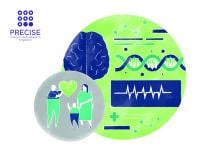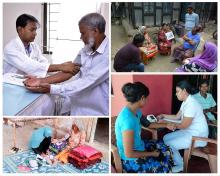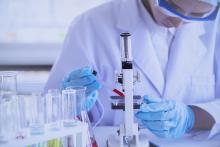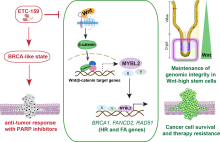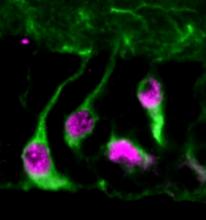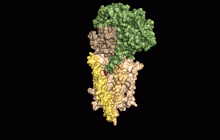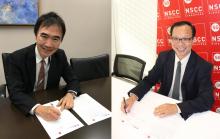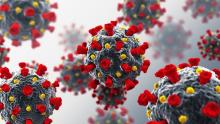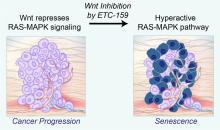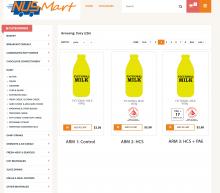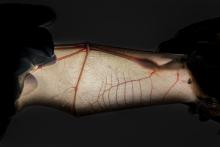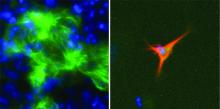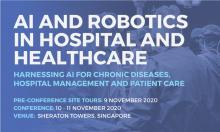Singapore
News

15 Apr 2021
A five-year study in Singapore has highlighted that chronic wounds among patients with diabetic foot ulcers and bed sores led to longer hospital stays.
07 Apr 2021
New national body established to further research insights, improve patient outcomes and create new economic opportunities for the biomedical technology industry.
29 Mar 2021
Multi-country trial finds low-cost intervention to improve hypertension management in rural communities is cost-effective. Consisting of home visits by community healthcare workers, physician training and coordination with public health care infrastructure, the intervention can be scaled up in low- and middle-income countries.
25 Mar 2021
Professor David Matchar and his team from the Health Services and Systems Research (HSSR) Programme at Duke-NUS bagged two prestigious awards at the International Stroke Conference 2021, held virtually on 17-19 March, 2021.
24 Mar 2021
Study shows that antibody longevity varies widely from 40 days to as long as several decades and not everyone who has recovered from COVID-19 is immune from reinfection. Individuals with low levels of neutralising antibodies may still be protected if they have robust T-cell immunity. Blood tests and a computer algorithm suggest annual vaccinations might be needed for some individuals to prevent future outbreaks of COVID-19.
16 Mar 2021
New research from Duke-NUS Medical School, and the Agency for Science, Technology and Research identifies chemotherapy-resistant cancers’ escape mechanism, which offers new anti-cancer treatment options.

02 Mar 2021
The SupercomputingAsia 2021 (SCA21) conference reflects this spirit of collaboration with a number of initiatives. These include the signing of a Memorandum of Understanding (MOU) that will create a new
link between Singapore entities and Finland’s CSC-IT Centre for Science, the launch of the inaugural
HPC Centre Leaders Forum, and the first EU-ASEAN-Japan Symposium.
11 Feb 2021
A brain enzyme activates dormant neural stem cells, revealing how defects in its gene could lead to neurodevelopmental disorders.
28 Jan 2021
COVID-19 has led to psychological distress among one in three adults, large-scale meta-analysis by researchers at Duke-NUS Medical School, Singapore, reveals.
19 Jan 2021
New ‘armoured’ T cells attack cancer without being suppressed by drugs given to transplant patients to avoid organ rejection.
12 Jan 2021
Preventing Wnt from hitching a ride may offer new avenue for novel treatments for cancer and fibrosis.
19 Dec 2020
The SNEC 15th (2021) International Photovoltaic Power Generation and Smart Energy Conference will be held on June 2-4, 2021 in Shanghai, China.
30 Nov 2020
New collaboration between Japan’s RIKEN Center for Computational Science (R-CCS), Research Organization for Information Science and Technology (RIST) and National Supercomputing Centre (NSCC) Singapore, will allow Singapore scientists to directly tap on Japan’s Fugaku supercomputer to do ground breaking research, enhance educational activities and develop talent in high performance computing (HPC).
30 Nov 2020
Cell ID Pte. Ltd., a Singapore-incorporated med-tech company, is selling a palm-sized portable genetic test kit that uses an app on a laptop to detect, anywhere, at any time, if a person has COVID-19.
23 Nov 2020
Taskforce will look into COVID-19 origins, leveraging expertise in One Health, outbreak investigation, virology, lab biosecurity and disease ecology.
20 Nov 2020
Cancer is a disease driven by mutations that alter the way biochemical signals control cell growth, division and migration. Scientists at Duke-NUS Medical School found out that, like Goldilocks, cancer is very picky about getting rapid growth just right.

18 Nov 2020
Thirty Teams Across the Asia Pacific Region Participated in the Six-Month Competition that Trains Student Teams to Practice and Produce Solutions using HPC and AI Platforms.
17 Nov 2020
A Duke-NUS Medical School study finds that new labels may be needed to help consumers make healthier food purchases.
13 Nov 2020
A Singapore study finds patients with chronic kidney disease need tailored nutrition guidance, as well as better communication with doctors and family support, to empower them to manage their condition.
06 Nov 2020
Testing for mutations in RNF43, a protein that affects key cancer cell-growth pathway Wnt, gives clinicians actionable insights to tailor treatments better.
04 Nov 2020
Innovative research by scientists at Duke-NUS Medical School has shed light on the mysterious role of long non-coding RNAs in the development of pancreatic cancer and suggests potential new targets for precision cancer therapies.
30 Oct 2020
Maternal antibodies primed to react to specific allergens can cross the placenta, passing on transiently allergic reactions to offspring, according to new preclinical research from a collaborative study by the Agency for Science, Technology and Research, KK Women’s and Children’s Hospital, and Duke-NUS Medical School in Singapore. The finding hints at why infants exhibit allergies so early in life and suggests possible targets for intervention.
26 Oct 2020
Study confirms bats adopt multiple strategies to reduce pro-inflammatory responses, thus mitigating potential immune-mediated tissue damage and disease. Findings provide important insights for medical research on human diseases.
12 Oct 2020
Collaboration by researchers in Singapore and Australia lead to first-of-its-kind computational biology algorithm that could enable more effective cellular therapies against major diseases.

08 Oct 2020
Separate partnership with National Supercomputing Centre to enable Singapore Polytechnic’s staff and students to develop AI innovations for local industries

07 Oct 2020
An anticipated 100+ expert speakers from around the world will convene to discuss next-generation identity solutions and their capability to both transform society and counter identity-based fraud.
09 Sep 2020
New centre launched by SingHealth–Duke-NUS to marshal expertise in prehospital emergency research to ensure best possible patient outcomes.
03 Sep 2020
Conference will see leading regional thought leaders, policymakers, C-suite officers, senior and middle level hospital and healthcare, e-health, clinical operations, medical and nursing professionals convene to explore new ways to innovate and collaborate.
03 Sep 2020
Study by researchers at Duke-NUS Medical School, Duke University and SingHealth finds that dispatch-assisted CPR, training in CPR and use of an Automated External Defibrillator, and a volunteer first responder mobile app, increased the likelihood of laypeople performing CPR during out-of-hospital cardiac arrest, which was associated with increased survival rates.
Events
Sorry, no events coming up for this topic.
- « first
- ‹ previous
- 1
- 2
- 3
- 4
Researchers
Sorry, no researchers coming up for this topic.
Giants in history
Maggie Lim (5 January 1913 – November 1995) was a Singaporean physician who promoted family planning and expanded the access to clinics to improve the quality of life for mothers and children in Singapore’s early days.
Gloria Lim (1930-2022) was a mycologist from Singapore who studied tropical fungi. One of the first students to attend University of Malaya when it was founded in 1949, she went on to become the first female Dean of the Faculty of Science at the University of Singapore.



